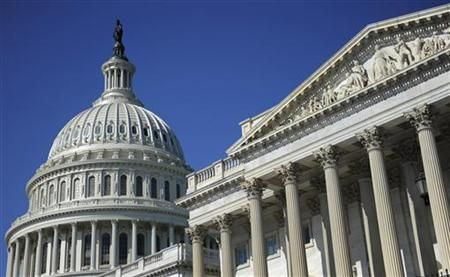Payroll Tax Cut Debate: Collins, McCaskill Offer Bipartisan Fix

U.S. Senators Susan Collins, R-Maine, and Claire McCaskill, D-Mo., have conjured a middle ground they believe could settle the ongoing debate over extending the payroll tax cut.
Their plan would extend the current cut for employees and lower employers' rate as well, while throwing money at infrastructure projects. It would be paid for by a 2 percent surtax on income over $1 million.
One of the primary objections to a surtax on very wealthy people has been its impact on small business, Collins told the New York Times. That concern resonated with me. The fact that we have been able, in a bipartisan way, to come up with a means of protecting small businesses is potentially a breakthrough.
First Bipartisan Proposal on Payroll Tax Cut Issue
The plan marks the first bipartisan proposal in what has been an ongoing tit-for-tat between Congressional Republicans and Democrats. It deviates substantially from the original Democratic proposal, which brought the payroll tax rate down to 3.1 percent while instituting a 3.25 percent surtax on millionaires.
Collins was the only Senate Republican to break rank with her caucus and vote in favor of the bill's initial iteration, which garnered 51 votes last week, falling to a filibuster.
Senate Majority Leader Harry Reid, D-Nev., and Sen. Bob Casey, D-Penn., rejiggered their original proposal, removing the cut for employers while lowering employees' rates at 3.1 percent. The new iteration also lowers the marginal tax rate on income over a million to 1.9 percent and would end after a decade, in a nod to Republican concerns of a permanent tax increase on the rich.
Republicans need to be prepared to meet us part way, Reid said.
The tax cut extension and increase represents the signature chunk of President Barack Obama's jobs bill, which has languished in Congress with only piecemeal passage of choice sections. The president is hoping to use the legislation to pin Republicans in a corner, forcing them to choose between tax cuts for the middle class and tax increases for the rich.
When the Republicans took over the House at the beginning of this year, they explicitly changed the rules to say that tax cuts don't have to be paid for, Obama said during a press conference on Monday. So forgive me a little bit of confusion when I hear folks insisting on tax cuts being paid for.
The Obama administration plans on increasing pressure on Republicans to come around and support the plan by whipping out a countdown clock in the White House press briefing room and on its Web site. The cheeky stunts are meant to tick down to tax increases for the middle class.
Possible $1,000 Tax Increase on Middle-Income Americans
If allowed to expire, the tax cut would hit middle-income Americans with a $1,000 steeper tax bill next year, according to the Obama administration.
That McCaskill and Collins worked together on a bill in a bipartisan fashion -- a rarity in Congress's current polarized climate -- represents some semblance of progress. But steadfast Republicans have argued against the tax cut's effectiveness overall.
There's no evidence that this temporary tax cut has actually produced any new jobs, which is the whole idea, said Sen. Jon Kyl, R-Ariz. The surtax is, in reality, a new tax that primarily hits small-business owners. That's who creates the jobs.
House Speaker John Boehner, R-Ohio, plans on incorporating the tax cut into a larger bill that would keep other tax increases at bay, while including unemployment benefit extensions. The plan would also toss in provisions to entice hesitant lawmakers, such as pushing through a decision on the Keystone XL pipeline, which the Obama shelved until 2013.
Another plan offered by Rep. Jeffrey Landry, R-La., would make the tax cut an-opt in. Employees who decide to take the 4.2 percent rate over the pre-cut 6.2 percent rate would have their retirement age pushed back by a month. The plan, novel as it may seem, stands little chance of passage.
© Copyright IBTimes 2025. All rights reserved.



















